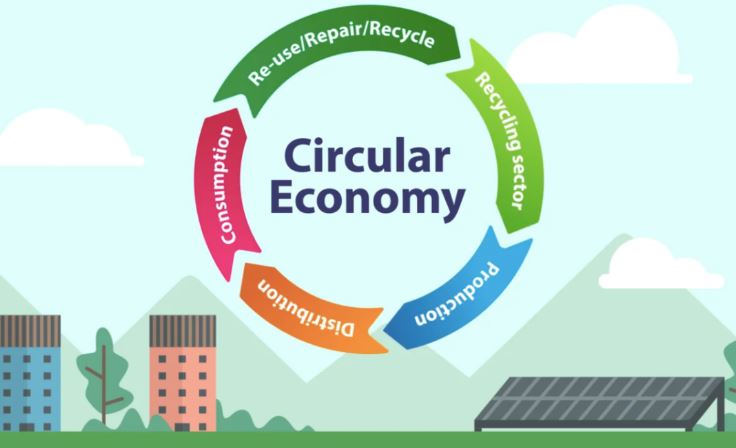A Cross Border Comparison on How Entrepreneurs Consider a Circular Economy When Starting an Enterprise (2018)
A Circular Economy Approach is an alternative to a traditional linear economy (make, use, dispose) in which we keep resources in use for as long as possible, extract the maximum value from them whilst in use, then recover and regenerate products and materials at the end of each service life. In short, there is no such thing as waste in a Circular Economy setting. The aim of this dissertation is to investigate how entrepreneurs consider the impact of the Circular Economy on starting a new enterprise.
The primary data was collected in Italy, while for the Netherlands and UK previous studies and declarations have been used throughout the research. Due to institutional arrangements and the economic development of all three European countries, the entrepreneurs think positively about the Circular Economy approach, but differently about starting a new enterprise: Italian and UK entrepreneurs are uncertain due to difficulties and uncertainties of their countries, while Dutch entrepreneurs are willing to invest in this futuristic approach. The ultimate aim of this dissertation is to analyze the various opinions that small-medium entrepreneurs have in three different countries, namely Italy (primary data), Netherlands and UK (secondary data), on the Circular Economy approach.
Based on the on the institutional context, the country economic development and the differences that can be seen among the three countries it will be discovered the thoughts that these entrepreneurs have on the possibility of opening a new enterprise constructed within the Circular Economy concept framework.
The aim of this dissertation is to analyze the various opinions that small-medium entrepreneurs have in three different countries, namely Italy (primary data), Netherlands and UK (secondary data), on the Circular Economy approach. Based on the on the institutional context, the country economic development and the differences that can be seen among the three countries it will be discovered the thoughts that these constructed with the CE concept.
The main intention to select these countries was to demonstrate the differences that can be seen among these European places on how entrepreneurs think on the possibility to set up an enterprise and how the variables can affect the results. After analyzing the different situations that the entrepreneurs can face in those different counties, it will be examined the different opinions and thoughts that those entrepreneurs have on the CE technique.
- 12,000 words – 58 pages in length
- Excellent use of literature
- Excellent analysis of subject area
- Well written throughout
- Ideal for international business students
1. Introduction
Research objective and conceptual model
2. Literature Review
The concept of Circular Economy and the earth problems
The pursue of the Circular Economy
Sharing and Extended use
Standardization and Modularization
Recycling and Upcycling
Economic context
The institutional arrangements
3. Methodology and Data Collection
Methodology
Data Collection
Primary data: unstructured and semi-structured interviews
Secondary data: previous studies and researches
4. Findings and Analysis
The countries and the differences among them
Italy
The Netherlands
United Kingdom
The concept of Circular Economy
The pursuit of the Circular Economy
Sharing and Extended use
Standardization and Modularization
Recycling and Upcycling
Economic context
The institutional arrangements
Summary table
5. Discussion and Conclusion
6. Recommendation and Limitation
References
Appendix

